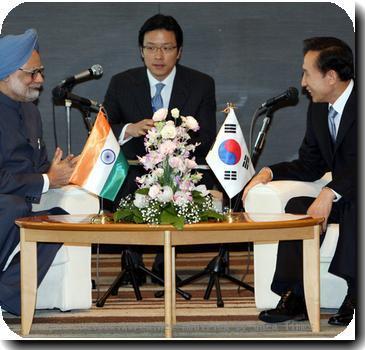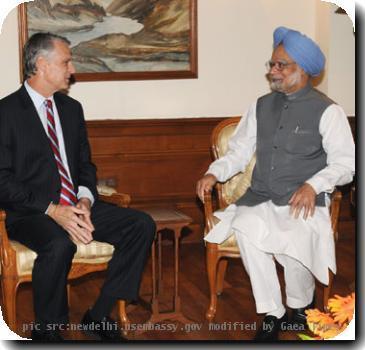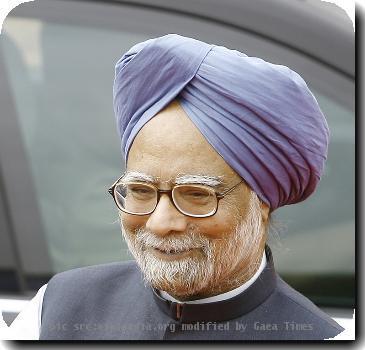Former Nepal PM Koirala, who led protests ending king’s authoritarian rule, dies at 86
By Binaj Gurubacharya, APSaturday, March 20, 2010
Nepal leader who helped end king’s rule dies at 86
KATMANDU, Nepal — Girija Prasad Koirala, Nepal’s former prime minister who led mass protests that ended the king’s authoritarian rule and helped deliver a peace deal to end 10 years of communist revolt, died Saturday. He was 86.
The Maoist former rebel leader called Koirala’s death an “irreparable loss” to the ongoing peace process, which has been stalled since political parties have not been able to decide on the fate of the thousands of Maoist former rebel fighters who have been confined to United Nations-monitored camps for years.
Koirala’s daughter, Deputy Prime Minister Sujata Koirala, said her father was worried about the country in the last days of his life and tried work out an agreement between the political parties.
Indian Prime Minister Manmohan Singh said in a condolence message that he had benefited from Koirala’s wise counsel on bilateral ties but also matters affecting all of South Asia.
“Koirala spent his entire political life championing the cause of the people …” Singh said. “Koirala was a mass leader and a statesman, whose knowledge and wisdom guided the polity of Nepal in the right direction at critical junctures in the country’s history.”
Koirala was president of the Nepali Congress party and led the mass street demonstrations in 2006 that forced then King Gyanendra to give up his authoritarian rule, reinstate parliament and appoint Koirala as caretaker prime minister. Soon after that Koirala’s government stripped Gyanendra of all his powers and command of the army.
Gyanendra was dethroned and the centuries-old monarchy abolished in May 2008. Soon after that Koirala stepped down as prime minister to allow a new coalition government led by former communist rebels to take power.
Koirala was a key figure in the peace process that ended 10 years of communist insurgency with the Maoist rebels giving up their armed revolt and joining mainstream politics.
In New York, a spokesperson for U.N. Secretary-General Ban Ki-moon called Koira’s death “a huge loss for Nepal and its ongoing peace process.”
Maoist chief Pushpa Kamal Dahal said Koirala’s death weakened the prospects of moving forward with national reconciliation.
“His death has caused irreparable loss to the peace process and process of writing a new constitution,” Dahal said.
Thousands of former rebels fighters are still in U.N.-monitored camps. The Maoists want them to be integrated in the national army, but other parties oppose the idea.
The new constitution is also supposed to be completed by May 2010, but the parties are still struggling to agree on the contents.
Koirala spent seven years in prison in the 1960s for fighting for democratic rule. After democracy was introduced in 1990, he became one of the most powerful forces in the country’s tumultuous political scene.
In 1991, Koirala became prime minister of the first democratically elected government after a popular revolt ended absolute rule by the king.
Koirala was known as an autocrat on party loyalty who often quashed internal dissent with an iron fist.
His fourth term ended in 2001 with his government beset by the Maoist insurgency, a bribery scandal and recriminations over a palace massacre that wiped out much of the royal family.
His government wasn’t implicated in the killings — in which the king, queen and seven other royal family members died, apparently at the hands of the crown prince, who killed himself — but the massacre shocked and dismayed Nepal, and blame for security lapses fell on Koirala.
The government has declared a national holiday on Sunday when the funeral is scheduled to take place.


